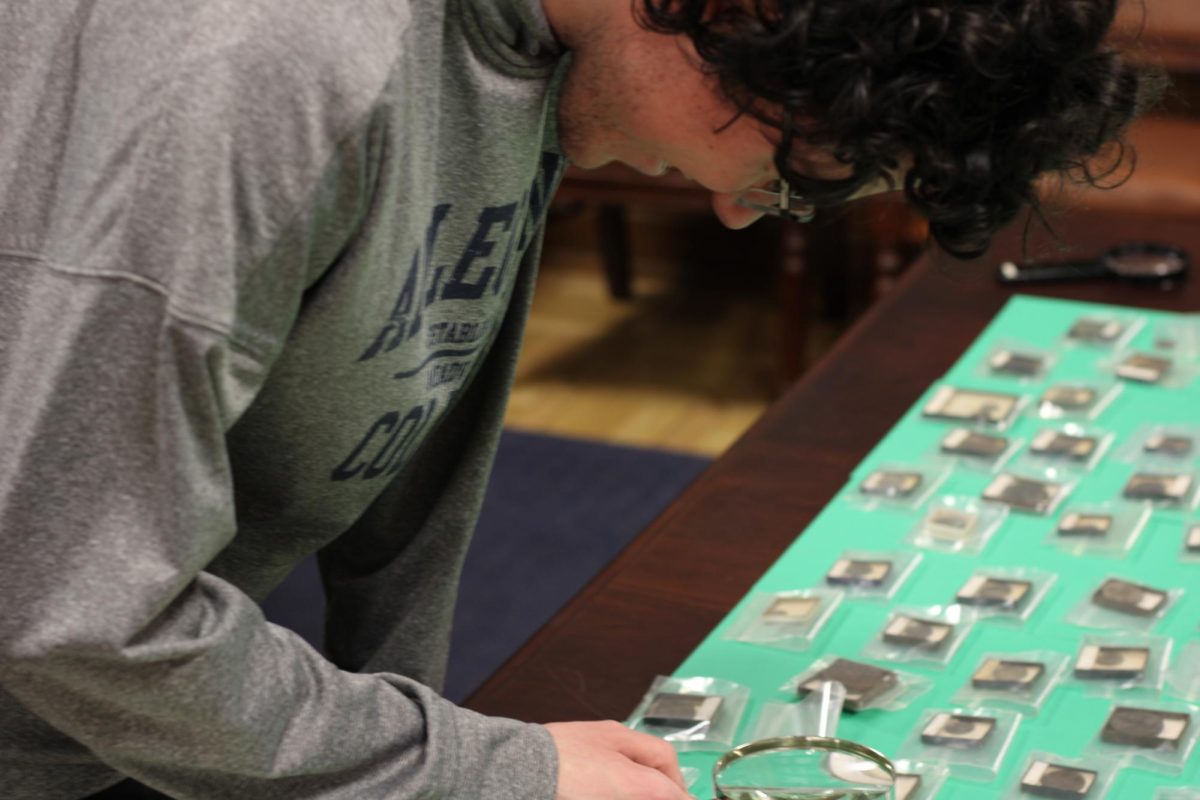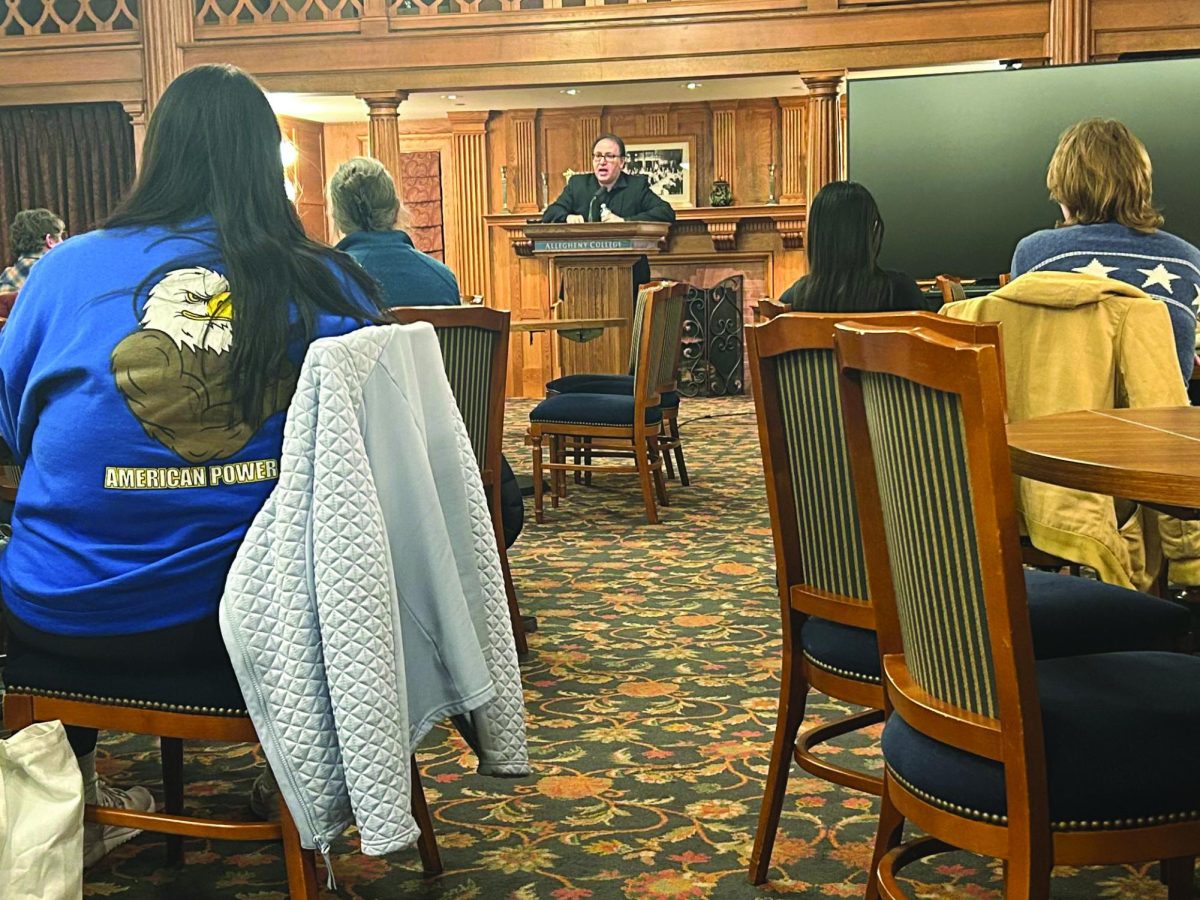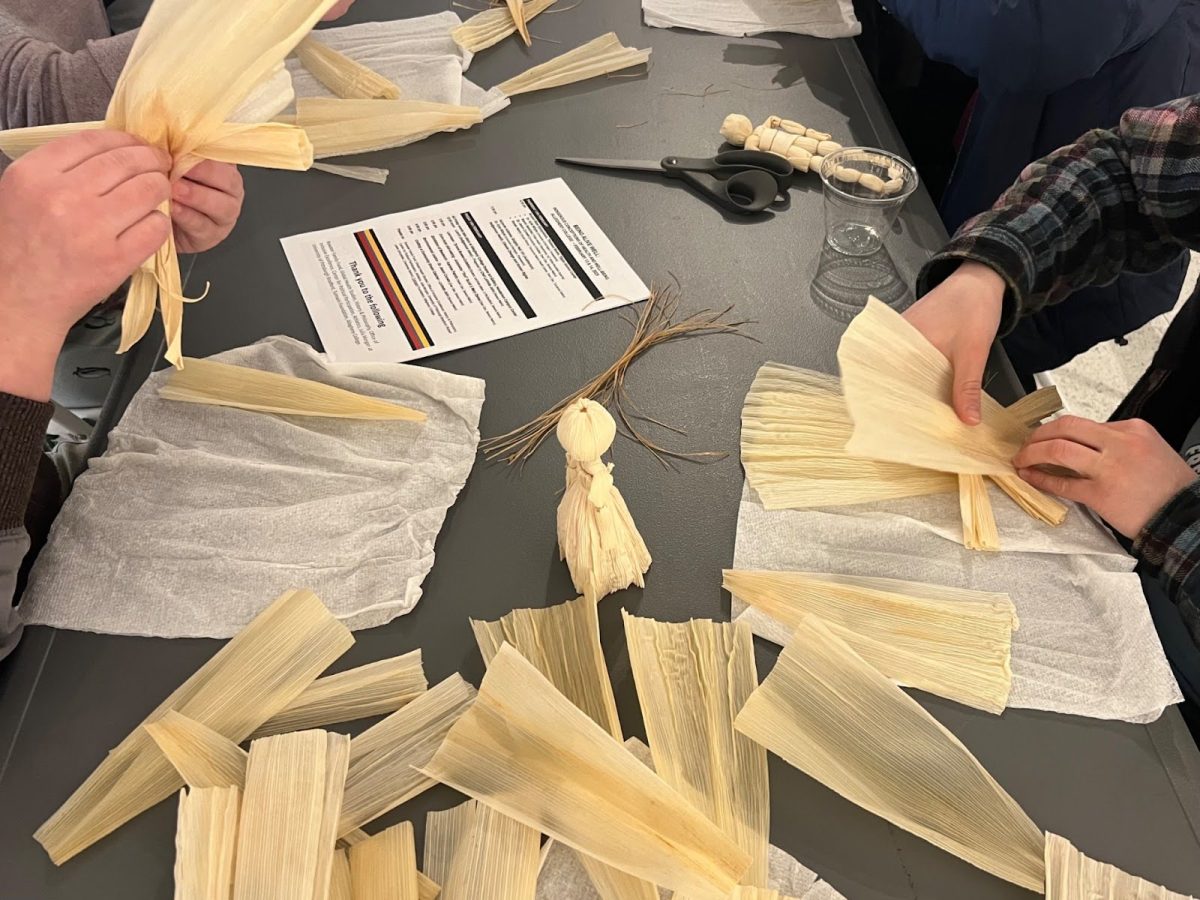The 2025 International Film Festival began last Thursday, presenting five weeks of language and culture in film at 7 p.m. every Thursday at The Movies at Meadville in Vernon Township.
The festival, organized by the Department of World Languages & Cultures, has been a staple of the college and Meadville community since the 1950s. It started as an initiative to showcase foreign films in Quigley Hall and later moved to the Academy Theater after Allegheny College donated a projector. With the shift to digital formats, the event now takes place at The Movies at Meadville, where it continues to provide free screenings to students and the broader community.
The films featured in this year’s festival represent languages offered at Allegheny College, including American Sign Language, Arabic, French, Spanish and German.
“Film is one of the easiest ways to open up conversations for people about different cultural experiences,” said Reem Hilal, co-chair of the film festival and associate professor of Arabic at Allegheny College.
Through storytelling, audiences are invited to step into someone else’s world, even if it’s just for a couple of hours, and see life through their eyes. It’s not just about watching a movie, it’s about connecting with universal human emotions, and recognizing the unique challenges and triumphs of specific cultures.
For example, one film that left an impression on Hilal was “The Man Who Sold His Skin,” a Syrian film based on a true story. The film follows a refugee who agrees to have the word “Visa” tattooed onto his back, and sit in a museum as an object, in exchange for safe passage out of the Middle East.
“It’s a beautiful film, but really hard to think about the experience, like why would someone have to make that choice in the first place?” Hilal said.
Barbara Riess, co-chair of the film festival and Professor of Spanish, recalled an Argentinian film titled “Argentina, 1985” which dealt with political violence and court trials.
“It was impactful because it shed light on a dark chapter in history,” Riess said. “Every film is a window into someone else’s reality, and sometimes, looking through that window changes how we see our own lives.”
Choosing the right films involves balancing faculty expertise, cultural relevance and logistical considerations. Each selection reflects the language and regions taught in the department, with professors proposing recent, appropriate films. Availability plays an important role, as organizers must make sure the films can be screened legally in the U.S.
“We try to find films that tell compelling stories while also challenging stereotypes,” Hilal said. “For example, this year’s Arabic film is a Palestinian documentary. It’s a powerful story about resilience and identity, but it also invites viewers to reflect on what they think they know about the region.”
Riess emphasized the importance of representation.
“The Spanish film this year, ‘20,000 Species of Bess,’ explores themes of gender identity and self-discovery,” Riess said. “These are contemporary issues in Spain, and seeing them portrayed authentically helps our audience understand the broader context.”
But why does representation matter? As the world becomes more connected, how do we challenge stereotypes about cultures we’ve never experienced? These films do more than entertain, they encourage viewers to think deeply and see the world from new perspectives.
Availability of films is often a challenge.
“Last year, we had a hard time finding an Arabic film because many didn’t have an American distribution, this year’s Palestinian documentary was chosen because it reflects current realities and offers nuance about the region,” Hilal said.
The process begins months in advance, with faculty members proposing films based on their expertise. Once a list is compiled, it’s sent to the theater to check availability. “Sometimes, even if a film is perfect, we can’t show it because it’s not available in the U.S.,” Riess said. “That’s why flexibility is key.”
The International Film Festival is open to anyone curious about the world beyond western Pennsylvania. With free admission and transportation provided for students, there’s no barrier to attending.
“Come to the movies, grab some popcorn and open your world on a Thursday night,” encouraged Riess. “You never know what you’ll learn or who you’ll meet.”
If students are looking to expand their perspective, the festival is a chance to experience different languages, cultures and stories — one film at a time. But more than anything, it leaves students with a question: How might these stories shape the way we see the world?
For over two decades, the festival has brought together students, faculty and community members in a shared celebration of language and culture.
“It’s part of who we are as a department,” Hilal said. “Fall is culture night, and spring is the film festival. It’s a tradition we’re proud to continue.”
As the festival grows, so does its potential to inspire. Whether it’s sparking an interest in learning a new language, encouraging students to study abroad or simply broadening someone’s worldview. So grab your popcorn, settle into your seat and get ready for an experience like no other. The world is waiting and it’s just a Thursday night away.
Categories:
Allegheny College hosts International Film Series
Story continues below advertisement
0
Tags:
More to Discover






